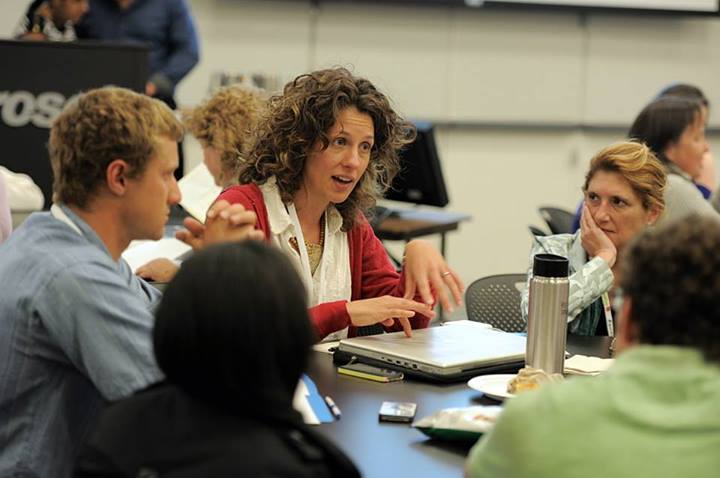
Grants help bridge the digital divide in Silicon Valley
Photo credit: Social Media for Nonprofits
Before joining Knight Foundation, I was general counsel of a nonprofit tech startup, InSTEDD, which develops innovative tech tools to improve health and safety. So I am keenly aware of how digital tools help connect people to each other for information and collective action when their lives may literally depend on it.
While it may not be as urgent as responding to a disaster, having the basic skills that unleash the power of digital technology is becoming fundamental for people to connect to information and resources at work and at home. It is especially surprising that so many people right here in Silicon Valley, the epicenter of technology innovation, are not digitally literate enough to use the technologies being created right around them.
The Knight Commission on the Information Needs of Communities in a Democracy stressed the importance of “strengthening the capacity of individuals to engage with information.” Lack of skills to use new technologies creates a digital divide that excludes residents from new forms of information and active civic participation.
That’s why Knight is making grants totaling $495,000 to six organizations in San Jose and Silicon Valley that are focused on promoting 21st century digital skills.
Even in tech-rich Palo Alto, a digital divide separates low-income youth from their schoolmates. To bridge that divide, the Palo Alto Housing Corp. developed the Digital Leaders Intern Program, a media arts program where the teens learn digital media skills and produce films about their own experiences. One 15-year-old intern, Dami Bolarinwa, originally from Nigeria, was interviewed along with other local immigrants, telling his story in riveting first person and then helping produce The Choice That Changed Everything, a video about being “different” in a new country.
PACT, People Acting in Community Together, is also bridging the digital divide by training volunteer neighborhood leaders in San Jose to use Internet research and social media tools. The trainees then teach low-income residents how to use the same tools so they can work more effectively together on local community issues.
Technology is also becoming a vital tool in providing Silicon Valley residents with a more effective voice in local matters.
Greenbelt Alliance is designing a platform for community members to interactively share information and opinions about development issues in their communities. Residents will be able to use Our Backyard to access and create a critical mass of content to help them better understand how development will shape their community’s future and communicate their interests to decision-makers.
The Community Foundation for San Benito County, just south of San Jose, is developing BenitoLink, an interactive and homegrown source of news and information that is available online, via desktop and mobile devices. Recently launched, the site is already getting 2,000 visits a month. Residents are posting photos and announcements, checking on local breaking news and submitting and commenting on articles on the site. “We are taking on the challenge of life after the daily newspaper, and it is transforming the way people get information in San Benito County,” says Julie Morris, executive director of Vision San Benito County.
Two of Knight’s grants are also helping the nonprofit sector keep up with technology innovations.
The Silicon Valley Council of Nonprofits’ program HandsOn Tech Silicon Valley, developed in partnership with AmeriCorps VISTA and Google, has so far held 34 events and 44 “deep-dive” workshops, with 108 volunteer tech experts providing 788 hours of training for 341 nonprofits. The lessons cover such areas as digital tools, customer relationship management programs, file sharing and cloud computing, as well as data analytics. “This was great for those like me who want to see their nonprofit, [which] has been around for over a hundred years, grow into this century,” said one participant. Another said, “Your program will make a huge impact on Heart of the Valley and the clients we are serving. There is simply no way we could ever afford the expertise you have so generously shared.”
And in June, more than 600 nonprofit leaders attended the Knight-sponsored Nonprofit Boot Camp and Social Media for Nonprofits, the world’s only conference series dedicated to social media for social good. The two-day program provided tips and tools for leveraging technology-based media to help advance program goals.
We expect these programs will increase the capacity of Silicon Valley residents and organizations to better connect to each other, improving information flow and the ability to act collaboratively for the common good.
Judith Kleinberg, program director, San Jose and Silicon Valley
Recent Content
-
Community Impactarticle ·
-
Community Impactarticle ·
-
Community Impactarticle ·


